| Aspect | Description |
|---|---|
| Parasha Number | The 24th Parasha in the Book of Leviticus (Vayikra). |
| Parasha Name | Vayikra (וַיִּקְרָא), translating to “And He called” in Hebrew, referring to the opening words of the book, where God calls to Moses from the Tabernacle. |
| Torah Book | Leviticus (Vayikra). |
| Number of Verses | Comprises 111 verses. |
| Number of Words | Approximately 2,890 words in the Hebrew text. |
| Primary Characters | Central figures include Moses, Aaron, and various priests, as well as God who speaks to Moses from the Tabernacle. |
| Key Themes | Focuses on the laws of sacrifices, rituals, and purity, delineating the structure of worship and ethical conduct for the Israelites, emphasizing holiness and sanctification. |
| Significant Events | Introduces the sacrificial system, details various types of offerings, including burnt offerings, meal offerings, peace offerings, sin offerings, and guilt offerings. |
| Notable Quotes | “Speak to the children of Israel and say to them: ‘When any one of you brings an offering to the Lord, you shall bring your offering of the livestock—of the herd and of the flock.'” |
| Legacy | Parashat Vayikra establishes the framework for Jewish worship and ethical conduct, emphasizing the importance of approaching God with reverence and purity. |
| Relevance Today | The themes of sacrifice, worship, and ethical conduct remain relevant in contemporary Jewish practice, emphasizing devotion, repentance, and spiritual purity. |
| Well-Known Stories | Include the institution of various sacrifices, the consecration of the priests, the laws regarding clean and unclean animals, and the punishment for transgressions. |
| Special Observances | Considered central in synagogue services, Parashat Vayikra prompts reflection on the significance of sacrifice, atonement, and living a morally upright life. |
| Connections to Other Texts | Vayikra connects to the previous narratives in Exodus, particularly the construction of the Tabernacle, and sets the stage for the Israelites’ journey through the wilderness. |
| Theological Significance | Highlights the concept of atonement, the relationship between God and humanity, and the importance of obedience to divine commandments for maintaining spiritual purity and holiness. |
Parashat Vayikra, the 24th portion in the Book of Leviticus, marks the beginning of a new book in the Torah, focusing primarily on laws and rituals pertaining to sacrifice, worship, and purity. The parasha opens with God calling out to Moses from the Tent of Meeting, instructing him on the various types of offerings that the Israelites are to bring before Him. These offerings include burnt offerings, meal offerings, peace offerings, sin offerings, and guilt offerings, each serving different purposes in the religious life of the community.
Central to the themes of Vayikra is the concept of holiness and sanctification. The detailed instructions for the sacrificial system emphasize the importance of approaching God with reverence and purity, highlighting the need for ethical conduct and spiritual devotion among the Israelites. Additionally, the parasha outlines regulations regarding clean and unclean animals, further reinforcing the idea of maintaining purity in all aspects of life.
Throughout Vayikra, Moses conveys God’s commandments to the people, instructing them on how to perform the various rituals and offerings in accordance with divine law. The parasha also addresses the consecration of the priests, setting them apart for their sacred duties within the Tabernacle.
As the first portion in the book of Leviticus, Vayikra lays the groundwork for Jewish worship and ethical conduct, emphasizing the importance of obedience to divine commandments and the pursuit of holiness. Its teachings remain relevant in contemporary Jewish practice, serving as a guide for spiritual devotion, repentance, and moral living.
ויקרא
א׳:א׳-ה׳:כ״ו
Vayikra
Leviticus 1:1-5:26
ישעיהו
מ״ג
Isaiah
43:21-44:23
That you should be weary of Me, O Israel.
Nor honored Me with your sacrifices.
I have not burdened you with grain offerings,
Nor wearied you about frankincense.
Nor sated Me with the fat of your sacrifices.
Instead, you have burdened Me with your sins,
You have wearied Me with your iniquities.
Wipe your transgressions away
And remember your sins no more.
Let us join in argument,
Tell your version,
That you may be vindicated.
And your spokesmen transgressed against Me.
I abandoned Jacob to proscription
And Israel to mockery.
Israel whom I have chosen!
Your Creator who has helped you since birth:
Fear not, My servant Jacob,
Jeshurun whom I have chosen,
And rain upon dry ground,
So will I pour My spirit on your offspring,
My blessing upon your posterity.
Like willows by watercourses.
Another shall use the name of “Jacob,”
Another shall mark his arm “of GOD ”
And adopt the name of “Israel.”
Their Redeemer, GOD of Hosts:
I am the first and I am the last,
And there is no god but Me.
Can foretell it—and match Me thereby?
Even as I told the future to an ancient people,
So let anyone foretell coming events to them.
Have I not from of old predicted to you?
I foretold, and you are My witnesses.
Is there any god, then, but Me?
“There is no other rock; I know none!”
All work to no purpose;
And the things they treasure
Can do no good,
As they themselves can testify.
They neither look nor think,
And so they shall be shamed.
Or cast a statue
That can do no good?
They are craftsmen, are merely human.
Let them all assemble and stand up!
They shall be cowed, and they shall be shamed.
Works it over charcoal
And fashions it by hammering,
Working with the strength of his arm.
Should he go hungry, his strength would ebb;
Should he drink no water, he would grow faint.
And marks out a shape with a stylus;
He forms it with scraping tools,
Marking it out with a compass.
He gives it the form of a person—
Human beauty, to dwell in a shrine.
He chooses plane trees and oaks.
He sets aside trees of the forest;
Or plants firs, and the rain makes them grow.
He takes some to warm himself,
And he builds a fire and bakes bread.
He also makes a god of it and worships it,
Fashions an idol and bows down to it!
On that part he roasts meat,
He eats the roast and is sated;
He also warms himself and cries, “Ah,
I am warm! I can feel the heat!”
He bows down to it, worships it;
He prays to it and cries,
“Save me, for you are my god!”
Their eyes are besmeared, and they see not;
Their minds, and they cannot think.
They lack the wit and judgment to say:
“Part of it I burned in a fire;
I also baked bread on the coals,
I roasted meat and ate it—
Should I make the rest an abhorrence?
Should I bow to a block of wood?”
A deluded mind has led him astray,
And he cannot save himself;
He never says to himself,
“The thing in my hand is a fraud!”
For you, O Israel, are My servant:
I fashioned you, you are My servant—
O Israel, never forget Me.
Your transgressions like mist—
Come back to Me, for I redeem you.
Shout aloud, O depths of the earth!
Shout for joy, O mountains,
O forests with all your trees!
For GOD has redeemed Jacob,
Has gained glory through Israel.
Vayikra
more on Parashat Parashat Vayikra: Laws of Sacrifice
Quick Guide: The Five Books of Moses
| Genesis | Exodus | Leviticus | Numbers | Deuteronomy |
|---|---|---|---|---|
| Bereshit (1:1-6:8) |
Shemot (1:1-6:1) |
Vayikra (1:1-5:26) |
Bemidbar (1:1-4:20) |
Devarim (1:1-3:22) |
| Noach (6:9-11:32) |
Va'era (6:2-9:35) |
Tzav (6:1-8:36) |
Naso (4:21-7:89) |
Va'etchanan (3:23-7:11) |
| Lech Lecha (12:1-17:27) |
Bo (10:1-13:16) |
Shemini (9:1-11:47) |
Behaalotecha (8:1-12:16) |
Ekev (7:12-11:25) |
| Vayera (18:1-22:24) |
Beshalach (13:17-17:16) |
Tazria (12:1-13:59) |
Shelach (13:1-15:41) |
Re'eh (11:26-16:17) |
| Chaye Sarah (23:1-25:18) |
Yitro (18:1-20:23) |
Metzora (14:1-15:33) |
Korach (16:1-18:32) |
Shoftim (16:18-21:9) |
| Toledot (25:19-28:9) |
Mishpatim (21:1-24:18) |
Achare Mot (16:1-18:30) |
Chukat (19:1-22:1) |
Ki Tetze (21:10-25:19) |
| Vayetze (28:10-32:3) |
Terumah (25:1-27:19) |
Kedoshim (19:1-20:27) |
Balak (22:2-25:9) |
Ki Tavo (26:1-29:8) |
| Vayishlach (32:4-36:43) |
Tetzaveh (27:20-30:10) |
Emor (21:1-24:23) |
Pinchas (25:10-30:1) |
Nitzavim (29:9-30:20) |
| Vayeshev (37:1-40:23) |
Ki Tisa (30:11-34:35) |
Behar (25:1-26:2) |
Matot (30:2-32:42) |
Vayelech (31:1-30) |
| Miketz (41:1-44:17) | Vayakhel (35:1-38:20) |
Bechukotai (26:3-27:34) |
Masei (33:1-36:13) |
Haazinu (32:1-52) |
| Vayigash (44:18-47:27) |
Pekude (38:21-40:38) |
V'Zot HaBeracha (33:1-34:12) |
||
| Vayechi (47:28-50:26) |

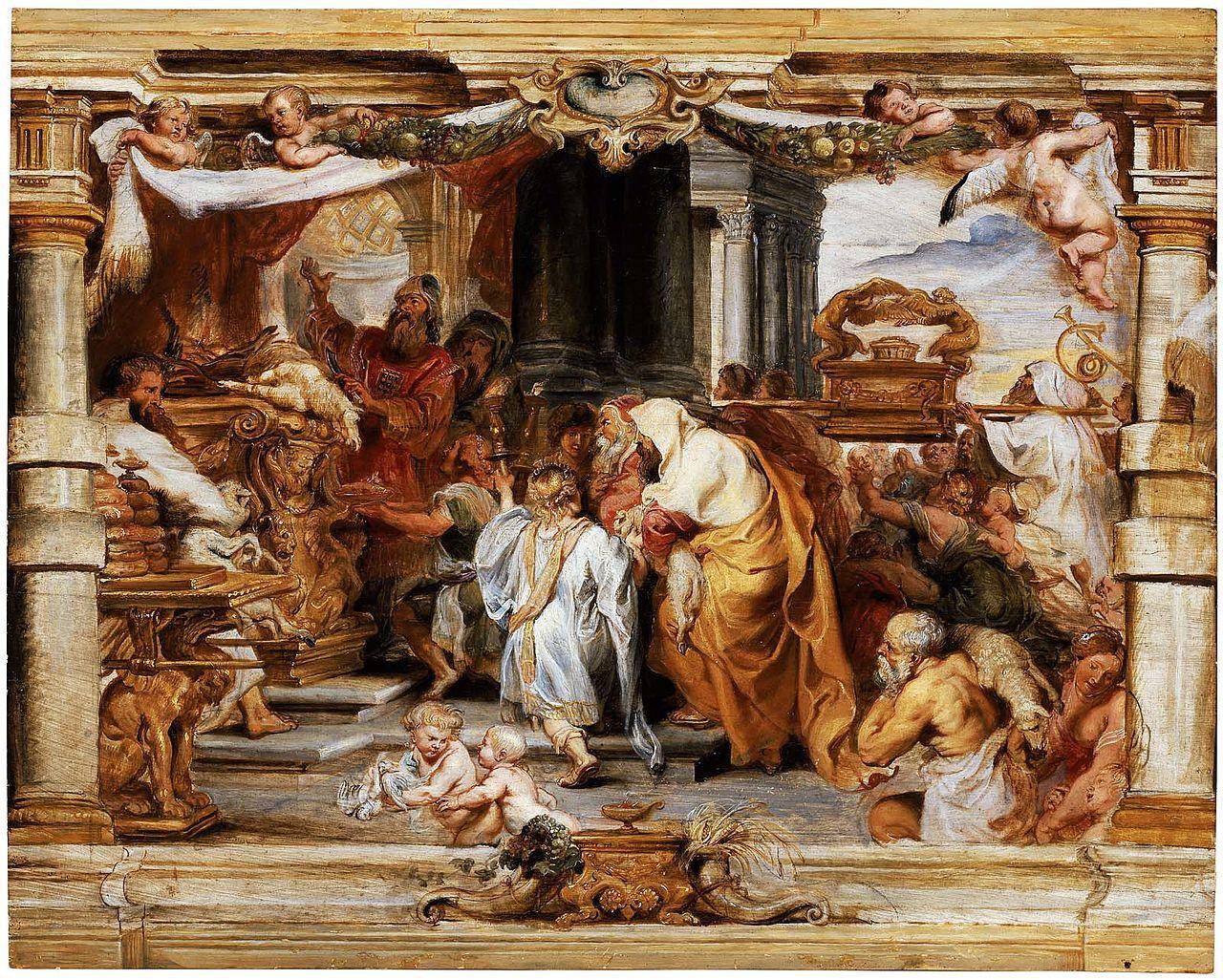

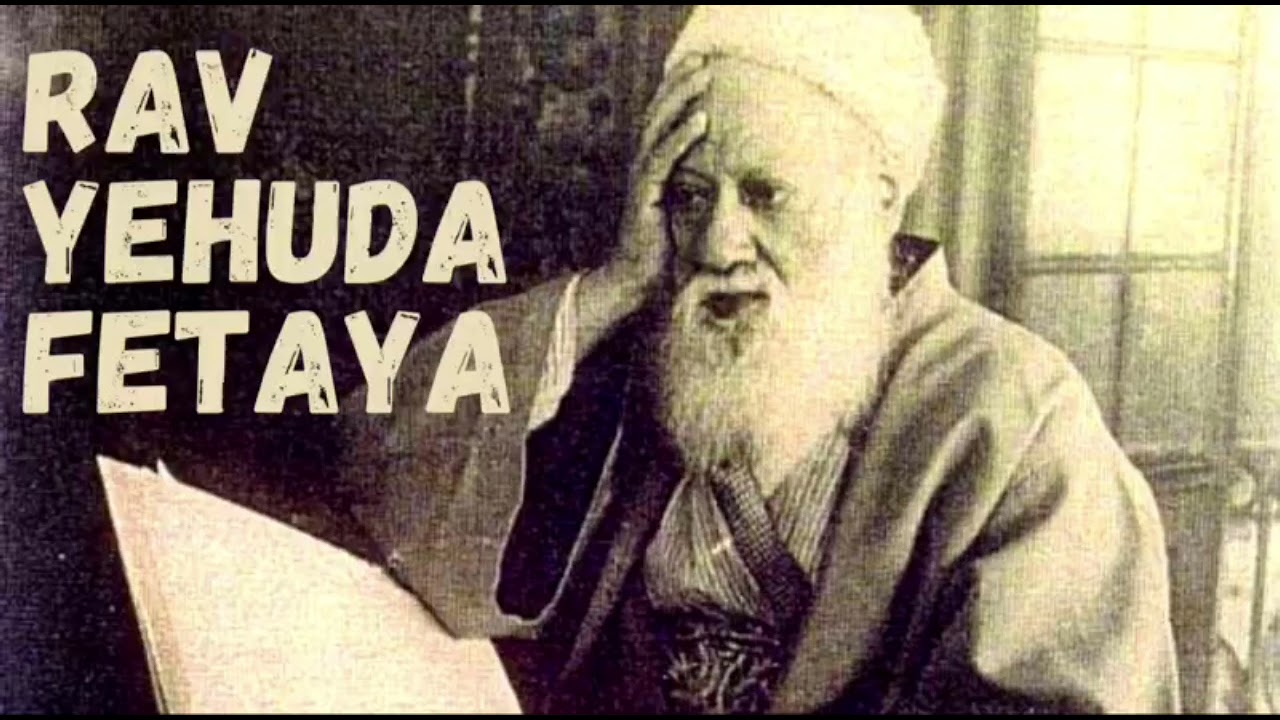
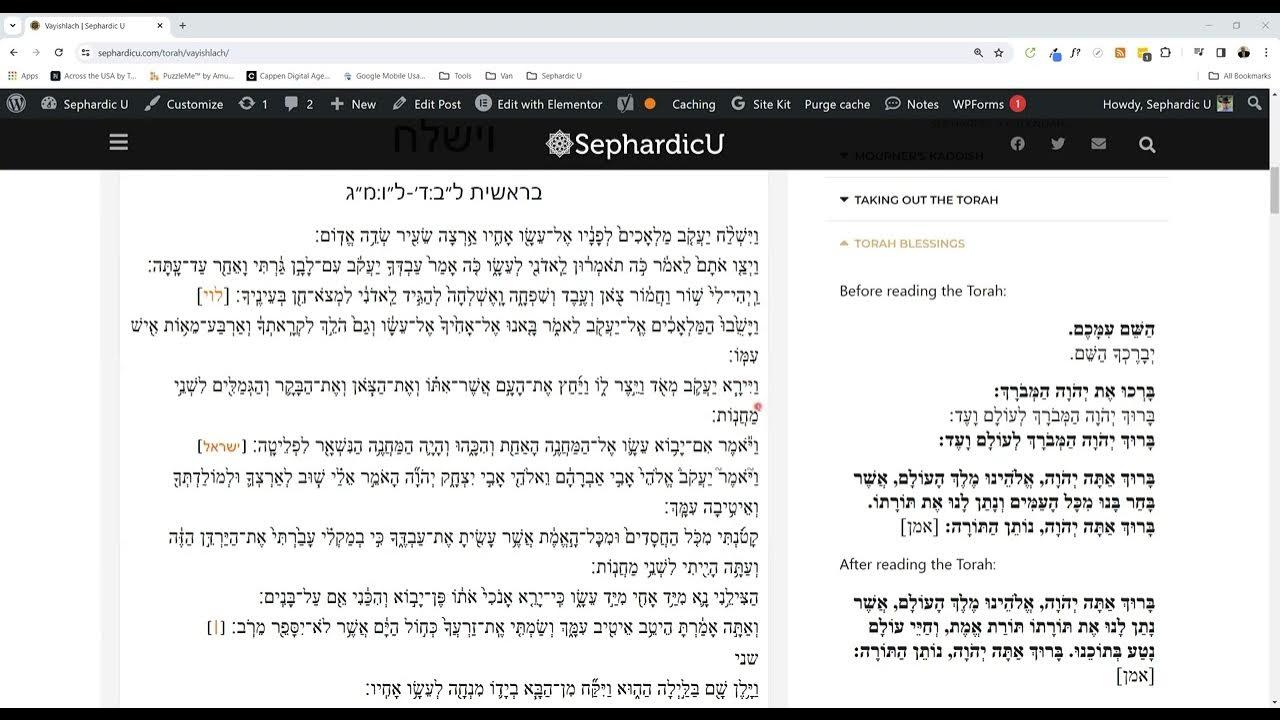
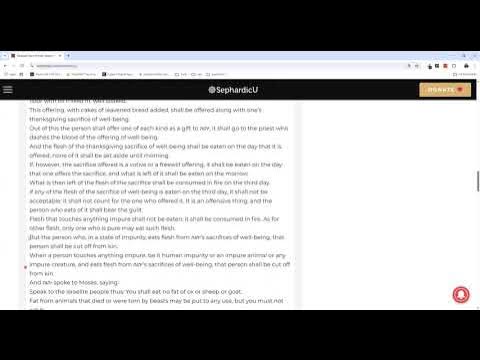
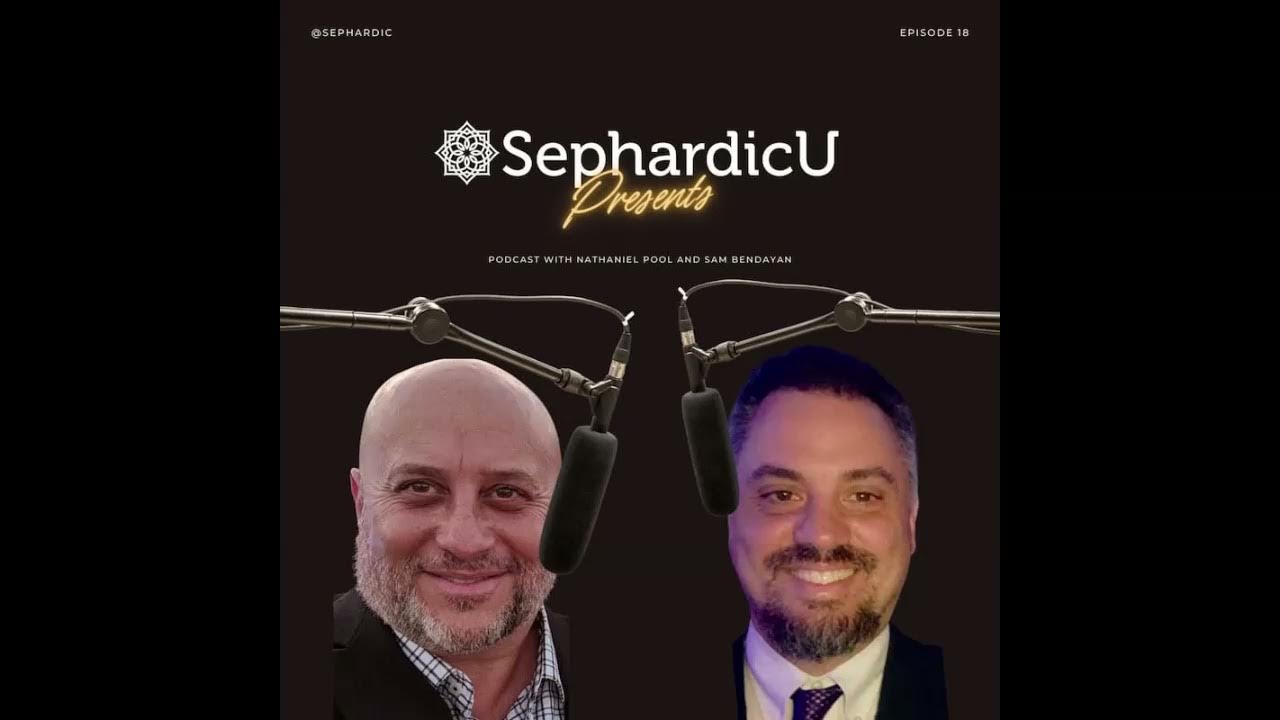
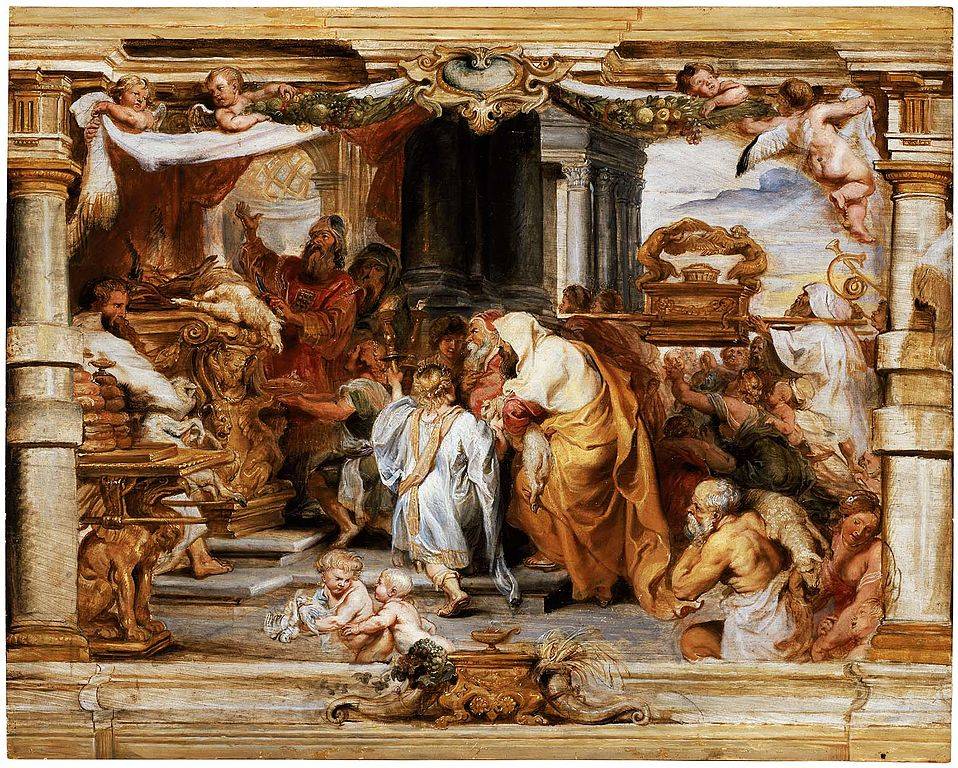



Parashat Yitro – Weekday Torah Reading (Sephardic style)